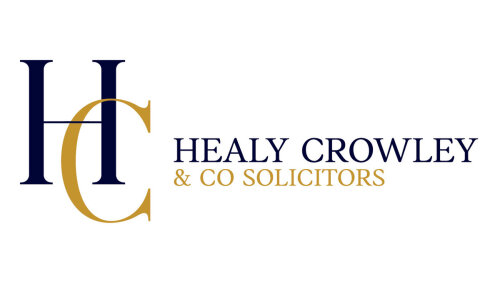Best Sanctions & Export Controls Lawyers in Ireland
Share your needs with us, get contacted by law firms.
Free. Takes 2 min.
Or refine your search by selecting a city:
List of the best lawyers in Ireland
About Sanctions & Export Controls Law in Ireland
Sanctions and export controls are key elements of Ireland’s regulatory framework, designed to manage risks related to international trade, national security, foreign policy, and human rights. These laws govern which goods, technologies, and financial resources may be sold, moved, or shared across Ireland’s borders and to whom. Ireland, as a member of the European Union, implements EU sanctions and export control regulations in addition to domestic laws. This framework ensures that Ireland contributes to global peace, security, and non-proliferation objectives by restricting or monitoring trade with certain countries, entities, or individuals.
Why You May Need a Lawyer
Sanctions and export controls law is complex and constantly evolving. Individuals and businesses may require the assistance of a legal expert for various reasons:
- Ensuring compliance with Irish, EU, and international trade laws
- Responding to official investigations or audits regarding export or financial activities
- Obtaining the correct licences or authorisations for exporting certain goods, technologies, or services
- Assessing partnerships or business opportunities that may raise sanctions compliance concerns
- Challenging wrongful inclusion on sanctions lists or appealing restriction decisions
- Mitigating potential penalties or reputational harm arising from inadvertent violations
Because the consequences of non-compliance can include severe financial penalties, criminal prosecution, and commercial restrictions, consulting a lawyer with experience in sanctions and export controls is essential for those unsure about their obligations.
Local Laws Overview
Ireland’s approach to sanctions and export controls is shaped primarily by European Union regulations, which are directly applicable in Irish law. Additionally, Ireland has transposed certain international obligations, such as those arising from United Nations Security Council resolutions, into national law.
Key aspects of Irish sanctions and export controls law include:
- EU Sanctions Regulations: These include trade, finance, travel, and sectoral sanctions targeting specific countries, individuals, and corporate entities.
- Control of Exports Act 2008 and related statutory instruments: This legislation governs the export of dual-use items (goods or technology with both civilian and military applications), military equipment, and certain sensitive goods.
- Irish export licensing authority: The Department of Enterprise, Trade and Employment oversees the granting of export licences for controlled goods and technology.
- Financial sanctions enforcement: The Central Bank of Ireland monitors compliance with asset freezing, payment restrictions, and other financial sanctions.
- Customs enforcement: Revenue authorities oversee the application of import and export restrictions at Ireland’s borders.
Violations of sanctions or export controls can result in criminal charges, significant fines, forfeiture of goods, and even imprisonment, depending on the severity of the breach.
Frequently Asked Questions
What are sanctions, and who imposes them in Ireland?
Sanctions are restrictive measures such as trade bans, asset freezes, or travel restrictions, often imposed to achieve foreign policy or security objectives. In Ireland, sanctions are principally imposed through EU regulations, but Irish legislation also allows for the enforcement of additional measures.
What are export controls?
Export controls regulate the transfer out of Ireland of certain sensitive goods, technologies, and services, particularly those with military or dual-use (civilian and military) applications. These controls help prevent the misuse of Irish exports in conflict or for human rights abuses.
Who needs an export licence in Ireland?
Businesses or individuals exporting military goods, dual-use items, or certain controlled technologies may require a licence from the Department of Enterprise, Trade and Employment. The need for a licence depends on the nature of the items, the destination country, and the end use.
How do I know if my business is affected by sanctions or export controls?
If your business trades goods, provides services, or transfers technology internationally, you may be affected. Companies dealing with high-tech equipment, chemicals, financial services, or imports and exports to countries with active restrictions are particularly at risk.
What are the penalties for breaching sanctions or export controls?
Penalties include substantial fines, confiscation of goods, loss of export privileges, and even imprisonment. The specific penalty depends on the nature and severity of the breach.
Can I apply for an exemption or authorisation if I need to do business with a sanctioned party?
In some cases, EU or Irish authorities may grant exemptions or licences for certain types of transactions, especially for humanitarian reasons or where it is determined that the activity aligns with the law’s objectives. Applications must be made to the relevant authority with supporting documentation.
What should I do if I am under investigation for a sanctions or export controls issue?
You should seek legal assistance immediately. Cooperate with authorities, preserve all relevant documents, and avoid taking any steps that could be interpreted as an attempt to conceal information.
How often do sanctions and export controls change?
The legal framework is frequently updated in response to international events, new political decisions, or security concerns. It’s essential to stay informed and review compliance procedures regularly.
What government bodies oversee sanctions and export controls in Ireland?
Key authorities include the Department of Enterprise, Trade and Employment (export licences), the Central Bank of Ireland (financial sanctions), Revenue (customs enforcement), and the Department of Foreign Affairs (policy guidance).
Where can I find updated information on current sanctions and export controls?
Government agency websites and official bulletins are the best sources. Regular updates are also available from reputable law firms and regulatory news sources specializing in sanctions and international trade law.
Additional Resources
For further information and assistance, consider consulting the following resources and organizations:
- Department of Enterprise, Trade and Employment: Oversees export licence applications and maintains guidance for exporters.
- Central Bank of Ireland: Publishes updates on financial sanctions and compliance obligations.
- Revenue Commissioners (Customs): Provides detailed information on prohibited and restricted exports and imports.
- Department of Foreign Affairs: Issues public notices on international sanctions and restricted party lists.
- Irish Exporters Association: Offers compliance guidance and support for businesses engaged in international trade.
- EU Sanctions Map: Visual summaries and legal details on active EU sanctions regimes.
- Legal aid services and law societies: For individuals or small businesses, specialist legal advice may be available through professional bodies or community legal services.
Next Steps
If you believe you are impacted by Irish sanctions or export controls, or if you have questions about compliance, it is important to take action:
- Review your current or planned international business activities and identify any potential risks.
- Consult official government guidance to determine if a licence or exemption is required.
- Keep clear and comprehensive records of all transactions, communications, and due diligence actions related to controlled goods or sanctioned parties.
- Engage a qualified Irish lawyer with specific expertise in sanctions and export controls. Early legal advice can help you understand your obligations, secure necessary authorisations, and avoid costly mistakes.
- Monitor regulatory changes and update your internal compliance policies and procedures regularly.
- Contact the relevant government agency if you have questions about specific products, destinations, or compliance requirements.
Taking proactive steps and seeking legal guidance ensures your business or personal activities remain compliant, reducing the risk of penalties and supporting Ireland’s commitments to international security and the rule of law.
Lawzana helps you find the best lawyers and law firms in Ireland through a curated and pre-screened list of qualified legal professionals. Our platform offers rankings and detailed profiles of attorneys and law firms, allowing you to compare based on practice areas, including Sanctions & Export Controls, experience, and client feedback.
Each profile includes a description of the firm's areas of practice, client reviews, team members and partners, year of establishment, spoken languages, office locations, contact information, social media presence, and any published articles or resources. Most firms on our platform speak English and are experienced in both local and international legal matters.
Get a quote from top-rated law firms in Ireland — quickly, securely, and without unnecessary hassle.
Disclaimer:
The information provided on this page is for general informational purposes only and does not constitute legal advice. While we strive to ensure the accuracy and relevance of the content, legal information may change over time, and interpretations of the law can vary. You should always consult with a qualified legal professional for advice specific to your situation.
We disclaim all liability for actions taken or not taken based on the content of this page. If you believe any information is incorrect or outdated, please contact us, and we will review and update it where appropriate.
Browse sanctions & export controls law firms by city in Ireland
Refine your search by selecting a city.

















